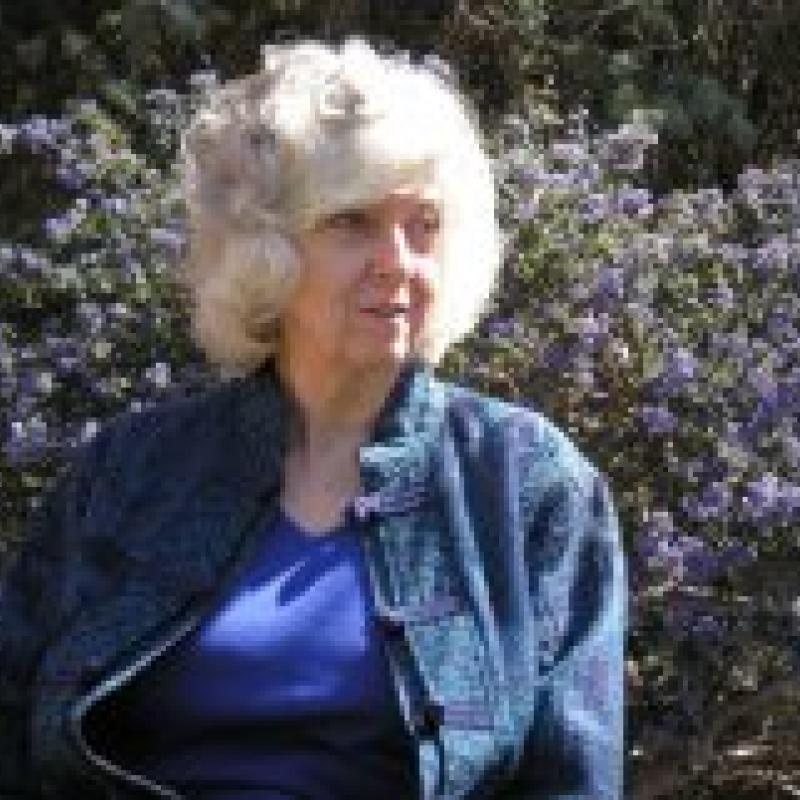In Memory of Kathy Charmaz, PhD
Professor Emerita

About
August 19, 1939 – July 26, 2020
Kathy Charmaz, a gifted and inspirational scholar, teacher and writer, died at her home in Santa Rosa on Sunday, June 26, after battling cancer. She was professor emerita in Sociology and former Director of the Faculty Writing Program. Kathy developed Constructivist Grounded Theory, a major research method in qualitative research, which is of influence internationally and across many disciplines and professions. Her areas of expertise included grounded theory, symbolic interactionism, death and dying, scholarly writing, sociological theory, social psychology, health and medicine, research methods, aging, sociology of emotions and the body, and she wrote prolifically in these areas.
Kathy earned her undergraduate degree, a bachelor of fine arts, in occupational therapy in 1962 from the University of Kansas, and she worked as a registered therapist in San Francisco for several years before returning to university with the intention of teaching OT students. In 1970, she married Stephen Charmaz.
In 1968, Kathy was part of the first cohort in the new Doctoral Program in Sociology at the University of California, San Francisco. Working primarily with Anselm Strauss and Barney Glaser, the founders of grounded theory research, she received her Ph.D. in Sociology in 1973.
She accepted a position at Sonoma State University in 1973 as a temporary Assistant Professor of Sociology, which converted to a tenure track appointment in 1974. She was promoted to Associate Professor in 1977 and to Professor in 1981. She became Professor Emerita in 2016. At Sonoma State, Kathy developed and taught diverse courses to undergraduate and graduate students in gerontology, and she created professional development courses for social scientists and other researchers both nationally and internationally.
During her tenure at Sonoma State University, Charmaz continued collaborations with colleagues at the Department of Social and Behavioral Sciences UCSF and continued writing, consulting, and conducting workshops in grounded theory. During the 1980s-1990s, her writings focused on symbolic interactionism and the psychosocial processes of chronic illness and dying. Kathy wrote books on aging and illness, including The Social Reality of Death (1980) and Aging, the Self and Community (1992), co-edited with Jaber Gubrium. In 1991, she published Good Days, Bad Days: The Self in Chronic Illness and Time (1991), which became foundational research in care of the chronically ill. The book was awarded the 1992 Charles Horton Cooley Award from the Society for the Study of Symbolic Interaction. In 2001, she received the Feminist Mentors Award from the Society for the Study of Symbolic Interaction and, five years later, received its George Herbert Mead Award for Lifetime Achievement.
Kathy’s influence included her service to the discipline of Sociology. She was elected president of the Pacific Sociological Association (1999–2000), served as editor of Symbolic Interaction (1999–2003), and was elected President of the Society for the Study of Symbolic Interaction (2009–2010). Additionally, she served on the editorial boards of 23 journals in qualitative inquiry and medical sociology, and she chaired major committees for the Medical Sociology Section of the American Sociological Association. She was an invited guest professor in Australia, Norway, Netherlands, Austria, New Zealand, and Japan. In the 1990s and early 2000s, Kathy’s numerous engagements teaching grounded theory further solidified the principles of Constructivist Grounded Theory. Her first grounded theory text, Constructing Grounded Theory: A Practical Guide through Qualitative Analysis (2006) has been widely distributed, and translated into Chinese, Japanese, Korean, Polish, and Portuguese. The work received a book award from the American Educational Studies Association and was expanded into a second edition in 2014. Kathy published 14 books, 63 book chapters, 33 articles, 16 encyclopedia entries, and 33 book reviews, while actively mentoring many researchers on their writing.
Kathy developed her own interests in constructivist grounded theory through applying it to critical social justice research. She argued that grounded theory supplies the analytic tools to move social justice research beyond description, noting that: “justice and injustice are abstract concepts, they are, moreover, enacted processes, made real through actions performed again and again. Grounded theorists can offer integrated theoretical statements about the conditions under which injustice or justice develops, changes, or continues.” Kathy Charmaz is remembered for her generous mentoring and teaching not only at Sonoma State University but nationally and internationally—few scholars have such reach. Kathy taught across disciplines, bringing the value and insights of Sociology, Grounded Theory, and scholarly writing to communities of students and scholars.
Segments abstracted from Social Science Space and Wikipedia. Accessed August 9, 2020.

